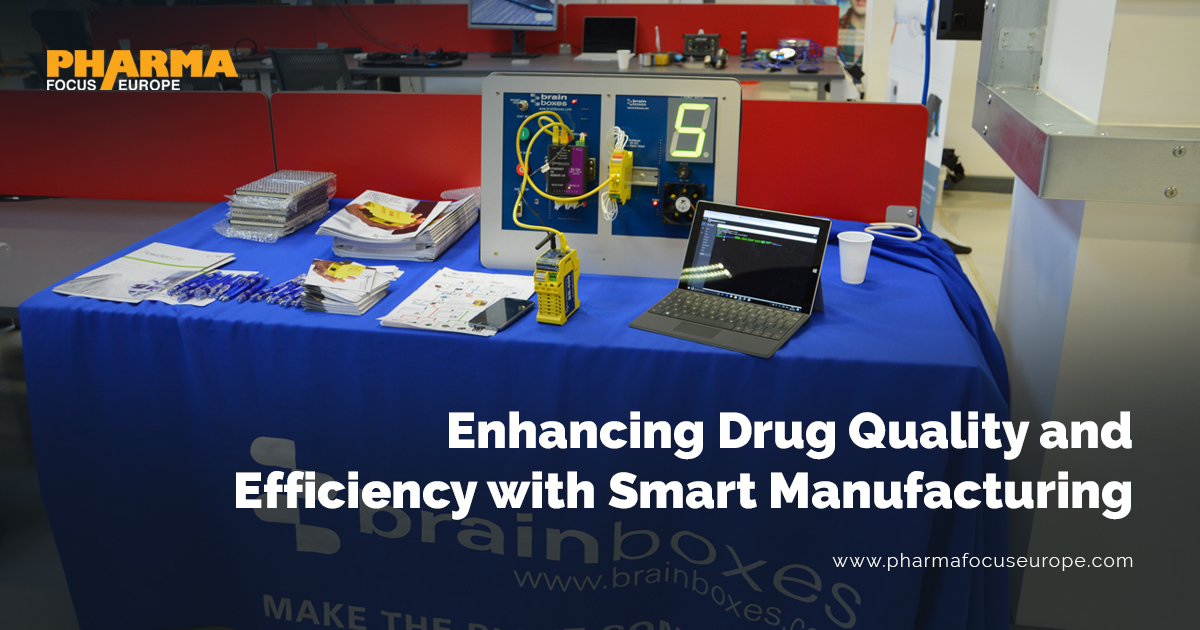
Smart manufacturing revolutionizes pharmaceutical production by integrating automation, AI, IoT, and blockchain for enhanced drug quality, efficiency, and safety. It reduces errors, ensures regulatory compliance, and accelerates production. Despite challenges like high investment and regulatory hurdles, its future promises personalized medicine, 3D bioprinting, and autonomous factories, transforming healthcare manufacturing standards.

Introduction:
Smart manufacturing development leads the pharmaceutical industry toward a substantial industrial shift. Current regulatory oversight has created production cost challenges that manufacturers face while managing drug safety requirements for high-quality medicine production. What are the methods by which technology can change the production methods of drugs? What position does automation and artificial intelligence (AI) as well as data analytics maintain toward maintaining stable quality with scalable production?
This article piece investigates how modern pharmaceutical production benefits from improved drug quality while creating more efficient operations in the future of drug manufacturing.
The Need for Smart Manufacturing in Pharmaceuticals
Drugs are typically produced through cumbersome methods that combine various shortcomings, such as operational expenses, together with performance irregularities and expense burdens. Formulation mistakes and batch variations, along with contamination possibilities, create an environment leading to such problems as product recalls and financial expenses alongside regulatory sanction violations. Smart manufacturing reduces processes, establishes current oversight and predictive system maintenance, and establishes superior quality control.
- How does smart manufacturing reduce errors and enhance quality?
- Can automation replace human intervention in critical processes?
- What are the biggest challenges in adopting smart manufacturing?
This text investigates the transformative influence of new technologies on pharmaceutical production methods of tomorrow.
Core Technologies Driving Smart Manufacturing
1. Automation & robotics:
- Due to automation, pharmaceutical facilities reduce their need for human intervention, which leads to less error occurrence and lowers contamination risks.
- By using robotics, pharmaceutical companies achieve better drug formulation precision together with fast packaging operations.
- Industrial robotic arms used within aseptic filling lines work to maintain injectable drug sterility levels.
2. Artificial Intelligence (AI) & Machine Learning:
- The implementation of automated systems involves less human interaction to decrease instances of errors and decrease possible contaminant risks.
- Robotics establish accurate drug creation and ultrafast packaging operations through precise machines.
- Robotics technology operates robotic arms that maintain sterility conditions during the filling of injectable drugs in aseptic lines.